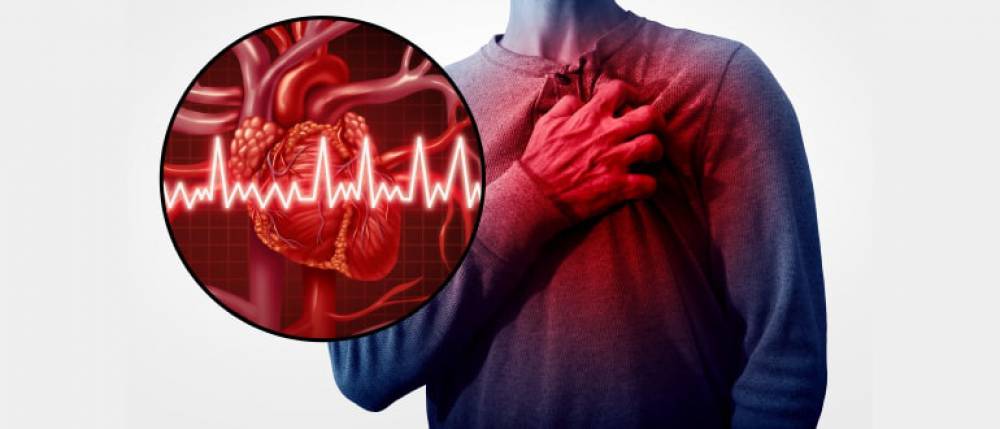Stroke is often confused with Heart attack and vice versa, but there is a stark difference between them. Both health conditions occur abruptly due to a lack of blood flow and require immediate medical attention. However, identifying the symptoms of a stroke and heart attack can make a difference in acquiring the right help at the right time.
This article will help you understand how stroke is different from heart attack and what are the symptoms that cause these health conditions. Read through to stay informed well in advance.
Stroke vs Heart Attack: Know the Difference
Simply put, these conditions occur due to inadequate blood flow to critical body organs. The occurrence of blockage to the heart leads to a heart attack, whereas the blockage of blood flow to the brain leads to stroke. Both of these conditions have different treatment options, and receiving immediate medical assistance can mean the difference between a patient's survival, recovery, or severe damage (even death).
>>Also Read: Lifestyle Habits That Increase Risk of Stroke
How is Stroke Caused?
A stroke occurs when an obstruction in blood flow doesn’t reach the brain adequately.
This condition is caused due to blockage or a ruptured vessel in the brain. Both occurrences prevent the supply of oxygen to the brain tissue. If this condition occurs, brain cells start to die fast due to starvation; hence, immediate medical assistance is indispensable to help the patient recover.
Symptoms of Stroke
Stroke symptoms result in brain cells dying from a lack of oxygen. These symptoms could include any of the signs mentioned below:
- Sudden dizziness or loss of balance, making walking or other physical activities tiresome
- Experiencing Weakness or numbness in limbs or face on one side of the body
- An unbearable headache
- Blurriness in one or both eyes
- Speech difficulty
- Problem understanding communication
It can be challenging to note all the possible stroke symptoms, especially when they start to occur abruptly. However, be careful of three key symptoms– impact on a person’s face, limbs and speaking ability.
How is Heart Attack Caused?
A heart stroke occurs when blood flow is obstructed from reaching the heart, causing severe damage to the heart muscle.
In most cases, heart attacks are caused due to coronary artery disease–a condition that occurs when plaque builds up in the arteries restricting blood flow over time. This condition makes the heart work harder— and may cause damaged or failed heart muscles.
Symptoms of Heart Attack
Heart attack symptoms occur abruptly or may build gradually over time or days. The most common symptoms of a heart attack are mentioned below:
- Pain in chest or stiffness
- Unexplained and sudden pain in arm or shoulders
- Sudden pain in back, jaw or neck
- Breathlessness
- Weakness, dizziness, or unconsciousness
A heart attack is often accompanied by unexpected tiredness, vomiting or nausea. However, these symptoms are more common among women than men. These signs are often confused for other conditions such as heartburn, acidity or a gallbladder attack.
Risk Factors of Stroke and Heart Attack
Heart attacks and strokes are often grouped together as ‘cardiovascular disease’ and that’s why they have common risk factors such as-
- Smoking
- Diet high in trans fats, saturated fats, cholesterol, salt, and sugar
- Excess alcohol consumption
- Irregular physical activity
- Diabetes
- High blood pressure
- High blood cholesterol
- Overweight and obesity
>>Check: Symptoms of Heart Attack
Diagnosis of Heart Attack and Stroke
If you experience stroke symptoms, your health practitioner will ask for the symptoms and a medical history you have had over the years. You will most likely to get a CT Scan of your brain that shows if there is bleeding in the brain and areas around it that have been affected due to irregular blood flow. Your health practitioner may also recommend getting an MRI if CT Scan doesn’t show accurate results.
Whereas in heart attack, different tests are conducted to diagnose the condition. Your doctor will anyway want to know the symptoms and medical history to get a better understanding. After everything, they’ll use an electrocardiogram to understand the health of your heart muscle. Your health practitioner may also get a blood test done to check for enzymes.
So, the diagnoses of heart attack and stroke are entirely different from each and shouldn’t be confused with anything.
Importance of Health Insurance to Cover Heart Attack and Stroke
One must realise that some health conditions are irreversible and require long-term treatments that could cost a fortune. Thus, taking precautionary measures to keep such ailments at bay is wise and advisable.
Furthermore, it is also essential to buy health plans that cover critical illnesses and keep your worries related to finances at a distance. Care Health Insurance’s Critical Illness Insurance will help compensate for most of your medical expenses, including costs incurred for an ambulance, ICU and alternate treatments.
Disclaimer: The above-mentioned information is for reference purposes only.
